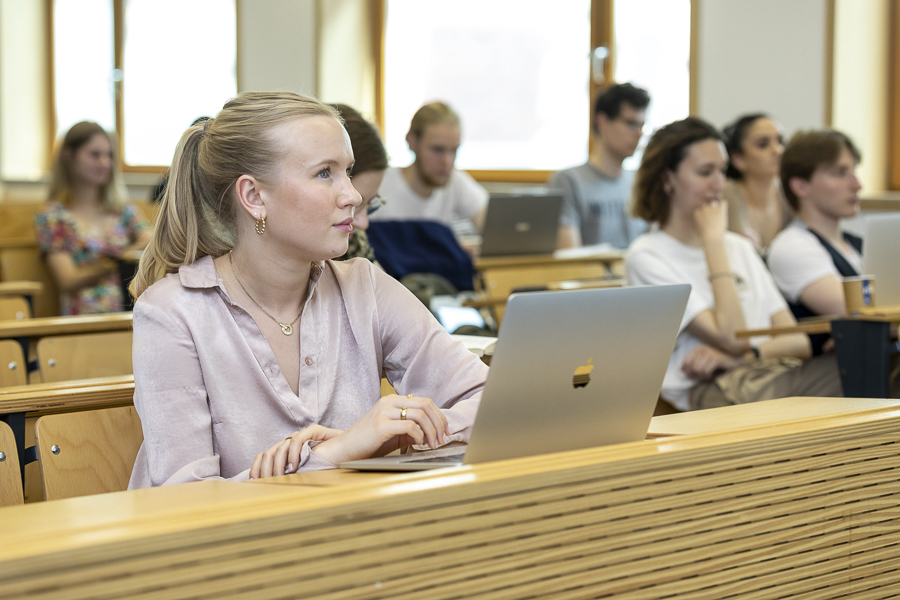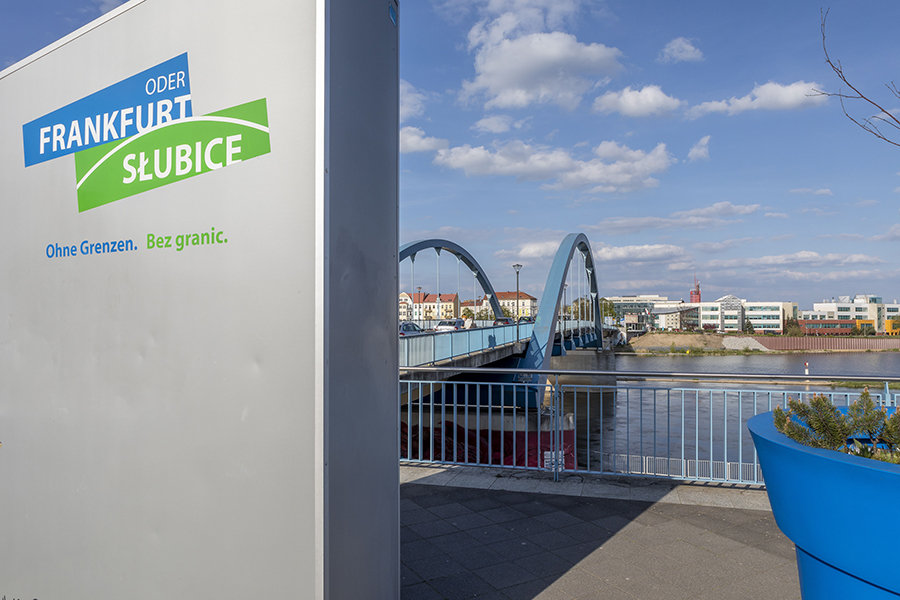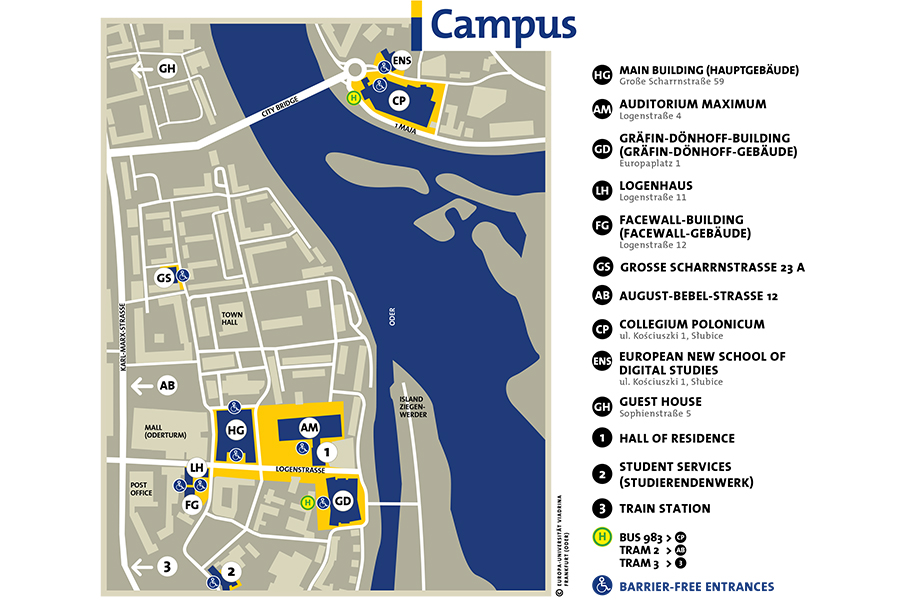The European System of Human Rights Protection - ECHR
Intro

The objectives of our Summer Course
This Summer Course will deal in detail specifically and exclusively with the European system for the protection of human rights. Although there are numerous summer courses and other special study programmes within Europe on human rights protection, this course concentrates on an integrated treatment of the various European systems and of specifically European issues of human rights protection, that is, with important matters relevant to over forty European countries with diverse political, economic, and social systems. The subject matter, therefore, includes human rights protection under the regimes of the Council of Europe (the European Convention on Human Rights and the European Social Charter), the European Community, the Organisation for Security and Co-operation in Europe (Helsinki Accords), as well as that on the universal level of public international law to the extent it is relevant. The treatment of the substantive regimes and their specific rights catalogues will be set against the background of a consideration of the philosophical, historical, political, economic, and sociological aspects of human rights, and include practical institutional matters such as complaint procedures as well as developments such as in the area of ‘New Rights’.
Practical and contemporary issues, such as the protection of human rights in situations of war or civil disorder, will also be addressed.
This comprehensive course has been organised by and will be presented by a dedicated group of experienced experts and teachers from universities in eleven European countries, co-ordinated by the Viadrina European University Frankfurt (Oder) (Germany). The other participants are the Universities of Poznań (Poland), Barcelona (Spain), Rotterdam (The Netherlands), Aberystwyth, Milton Keynes, Lancaster (United Kingdom), Bochum (Germany), Maribor, Kranj (Slovenia), Szeged (Hungary), Vienna, and Salzburg (Austria).
The next summer school is scheduled for 7 - 18 July 2025.
Further information for the Summer School 2025
Description of our Summer Course
This course is especially designed for advanced undergraduate students or recent graduates, providing individuals from all countries in both Western and Eastern Europe with an opportunity to expand their knowledge of human rights law and policy within the transnational European context.
Nevertheless, we strive to ensure that each year's group has a diverse background. We strongly believe this diversity allows every participant to learn from each other and fosters qualitative discussions. For this reason, professionals and participants from international organisations or NGOs are also welcome.
Additionally, we offer participants from regions outside Europe the opportunity to gain an overview of this highly relevant topic.
Every application will be evaluated individually. As minimum criteria, we expect our future participants to:
- Have a good working knowledge of English
- Be at an advanced stage of their studies
- Have at least a basic understanding of public international law
Held in English, the summer school will combine lecture and discussion approaches. Lectures will have a maximum of 60 participants, while discussion groups will be limited to 30 participants. Participants are expected to be actively involved, including reading materials set in advance for each session.
Overview of Regimes and Institutions
Prof. Dr. Hans-Joachim Heintze, Bochum
Individual Complaint Procedure
Dr. Márton Sulyok, Szeged
Universal Periodic Review (UPR) and Europe
Prof. Dr. Pablo Pareja Alcaraz, Barcelona
Right to Life
Prof. JUDr. PhDr. Veronika Bilkova, Prague
Prohibition of Discrimination
Prof. Gerard C. Rowe, Frankfurt (Oder)
Freedom of Expression
Dr. Agata Fijalkowski, Leeds
Freedom of Religion
Dr. Aleksander Gadkowski, Poznan
Prohibition of Slavery
Prof. Ryszard Piotrowicz, Aberystwyth
Right to Liberty and Security
Mag. Andreas Sauermoser, Vienna
Prohibition of Torture
Dr. Dimitrios Kagiaros, Durham
Right to Private and Family Life
Dr. habil. Anikó Szalai, Szeged
The Right to Fair Trial in Criminal Cases
Prof. Dr. Paul Mevis, Rotterdam
Freedom of Assembly and Association
Prof. Dr. Jernej Letnar Černič, Kranj
Migration and Refugees
Dr. Ulrike Brandl, Salzburg
Self-Determination and Minorities
Prof. Dr. Carmen Thiele, Frankfurt (Oder)
Human Rights Protection in Armed Conflicts
Prof. Natalia Szablewska, Milton Keynes
The teaching staff comes from different partner universities, and each faculty member enjoys a high reputation in their respective field.
From our faculty in Frankfurt (Oder):
- Prof. Dr. Carmen Thiele
- Prof. Gerard C. Rowe
Benefit also from the knowledge of the teaching staff from our partner universities and institutions:
- Prof. Pablo Pareja Alcaraz (Barcelona)
- Prof. Dr. Jernej Letnar Černič (Kranj)
- Dr. Márton Sulyok (Szeged)
- Prof. Dr. Hans-Joachim Heintze (Bochum)
- Dr. Anikó Szalai (Szeged)
- Dr. Ulrike Brandl (Salzburg)
- Dr. Paweł Kwiatkowski (Poznan)
- Prof. Natalia Szablewska (Milton Keynes)
- Doc. JUDr. PhDr. Veronika Bílková (Prague)
- Dr. Dimitrios Kagiaros (Durham)
- Anne Fock (Frankfurt (Oder))
- Mag. Andreas Sauermoser (Vienna)
- Jasmine Sommardal (Fiesole)
- Prof. Dr. Paul Mevis (Rotterdam)
Universities
- Aberystwyth University, UK
- Adam Mickiewicz University, Poznan, Poland
- European University Viadrina Frankfurt (Oder), Germany
- Erasmus University, Rotterdam, Netherlands
- School of Government and European Studies, Kranj, Slovenia
- Lancaster University Law School, UK
- Open University, Milton Keynes, UK
- Pompeu Fabra University, Barcelona, Spain
- Paris-Lodron University, Salzburg, Austria
- Ruhr University, Bochum, Germany
- University of Maribor, Slovenia
- University of Szeged, Hungary
Institutions
- German Red Cross, Berlin, Germany
- IALANA, Berlin, Germany
- Ludwig Boltzmann Institute for Human Rights, Vienna, Austria
- TRENDS, Abu Dhabi, UAE
Your benefits
What can you expect from us?
We run the Summer Course for now more than 20 years. This gives us the experience and a special knowledge of what a Summer Course on European Human Rights should be about. In a nutshell, what we offer you during your two weeks in Frankfurt (Oder) and Slubice, is:
- to be part of a dynamic university in the heart of Europe
- experience internationality by studying in Germany and living in Poland
- highly qualified teaching staff
- experienced and highly motivated organisational staff being at your service from your arrival until your last day, helping you out
- get to know interesting people from all over the world and get connected for much longer than just the duration of the Summer Course
- take part in our free-time activities
and many more. You may also use the opportunity to ask us via email or former participants via Facebook.

For students of the German law programme
Successful participation in the English-language lectures, seminars or the Moot Court can lead to an additional qualification (4 SWS) and a key qualification (1 SWS).
Certificate and ECTS
A certificate of participation will be issued at the end of the summer course. The students acquire 10 ECTS credits.
The facts
Dates
The Summer Course will take place from 7th to 18th July 2025
Application deadline
Applications should be received by 15th April 2025
Location
Frankfurt (Oder)
Fees
The total fee for the programme is €590. This charge includes full tuition costs, accommodation, and meals. Each participant must meet the cost of travel to and from Frankfurt (Oder).
Application procedure
Application for non-Viadrina-students
All non-Viadrina-students should fill in the online application and upload the following documents:
- Curriculum vitae (max. one page)
- Recommendation from a university teacher (preferably in public international law)
- Proof of competence in English
- Letter of motivation (max. one page)
Please follow closely the instructions which are contained in the online application.
Application deadline: 15th April 2025
Application for Viadrina-students
Viadrina and Erasmus students should just fill in the form below:
- Application Form (Word Document) or
- Application Form (PDF Document)
and send it to jursok@europa-uni.de.
Application deadline: 9th June 2025
Application for non-Viadrina-students
Application for Viadrina-students
Accommodation
Accommodation in modern student apartments (containing either single or twin bedrooms, with own kitchen and bathroom) will be provided for each participant. The cost for accommodation is included in the fees which will be charged.

Here are the facts
- Twin bedrooms
- In apartments for 4-6 persons
- Kitchen and bathroom in every apartment
- 24/7 reception
- Tennis court and gym on the premises
- Car park (partly supervised)
- Green area, offering the possibility of getting together
- Post office, supermarkets, and bars within walking distance
- Please note there is no Wi-Fi in the dorms
Important!
Lectures will be held in Germany, but accommodation is located in Slubice, Poland (across the Oder River from Frankfurt, within walking distance). Therefore, each participant may, depending on nationality, be required to hold multiple entry visas for both Germany and Poland (must be obtained before arrival!)
Visa Requirements
Important — Visa Requirements
Please note that the course will take place in Frankfurt (Oder), Germany, but accommodation will be in Słubice, Poland. Therefore, a Schengen visa for both Germany and Poland is required. For details on how to obtain a Schengen visa, please consult the embassy of Germany in your respective country.
If you are accepted as a participant, you will receive a written invitation from the University, which you may present at the embassy.
Please note that if you do not hold the required visa, the course organisers are unable to provide you with alternative accommodation. In this event, you will have to cover the additional costs for accommodation.
Detailed information can be obtained:

Travel
We're at the heart of Europe, that's why all roads lead to Frankfurt (Oder) and Slubice.
Arriving by bus to Berlin
If you are travelling to Berlin using long-distance coaches, you will probably arrive at the central bus station (Zentraler Omnibusbahnhof), located next to the international fairground.
Guide yourself to the metro (subway) station "Kaiserdamm," about 5 minutes' walk from the bus station. Inside the station, you will find a ticket machine where you should buy a single AB ticket. Use this map for your orientation.
Take metro line U2 towards "Pankow" and alight at "Zoologischer Garten" station. From there, guide yourself to the platforms where regional trains depart (upper level of the station). A map is available here for your reference. Beforehand, purchase a ticket to Frankfurt (Oder); ticket machines and counters are located in the main hall of the station building.
Board the RegionalExpress 1 (RE 1) towards Frankfurt (Oder) or Eisenhüttenstadt. Trains depart every 30 minutes, and the journey takes approximately 1 hour 30 minutes. Ensure you disembark at Frankfurt (Oder) Hauptbahnhof (main station), not at the stop "Frankfurt (Oder)-Rosengarten."
Upon arrival at Frankfurt (Oder) Hauptbahnhof, check our information regarding bus connections to accommodation in Słubice, Poland.
Arriving by bus to Slubice (Poland)
Especially if you are travelling from destinations in Poland, you may travel directly to the city of Słubice. Ask for a ticket to the bus station there, called "Dworzec Autobusowy Słubice" or "Dworzec PKS Słubice," or simply "D.A. Słubice." Check out the connections on the website of the Polish bus company. Daily connections are available from Poznań and Wrocław.
Upon arrival in Słubice, it is only a few metres to the student hostel. In fact, you need to turn into Pilsudskiego Street just across from the bus station, next to a supermarket called "Piotr i Paweł." The student hostel is located on the left side.
Accessibility
Frankfurt (Oder) and Słubice are easily accessible via motorway A12.
From Western, Southern, or Northern Europe
If you are coming from Western, Southern, or Northern Europe, your route will lead via Berlin. For example, from Southern Germany via motorway A9 (from Munich, France, Switzerland, Austria), via motorway A2 (from Cologne, Belgium, the Netherlands), or motorway A24 (from Hamburg, Denmark, Sweden). Around Berlin, follow signs towards the "Berlin Ring" (motorway A10) and then towards Frankfurt (Oder) and Warsaw (motorway A12). Exit the motorway at exit no. 9 and follow roads 87/112 to the city centre (look for signs "Zentrum", "Europa-Universität", or "Słubice").
From Eastern Europe
If you are coming from Eastern Europe, use Polish motorway A2 connecting Warsaw and Poznań with Frankfurt (Oder) and Słubice.
Parking
There is a (partly supervised) car park available at your accommodation.
General Information
- Website of the Berlin Airports
- Search for your connection from Berlin to Frankfurt (Oder)
Arriving at the Berlin Airpot (BER)
Leaving the airport, please guide yourself to the train station (about 3 minutes of walk). In the underpass inside the train station, you will find ticket machines. Please buy a single ticket from Berlin Schönefeld to Frankfurt (Oder). Then, please guide yourself to the platforms, where the regional trains are departing.
Please use the RegionalExpress 7 (RE 7), direction Dessau or Bad Belzig,
or
FEX, direction Berlin Hbf (tief). Leave the train at the train station Berlin Ostkreuz. At Berlin Ostkreuz, you have to change the train. You should take the Regional Express 1 (RE1), with destination to Frankfurt (Oder) or Eisenhüttenstadt. The trains depart every 30 minutes and the journey time will be about 1h. Please make sure, that you leave the train at the (main) train station of Frankfurt (Oder), not (!!) at the stop "Frankfurt (Oder)-Rosengarten.
Once you arrived at the train station in Frankfurt (Oder), check our information on the bus connection to the accommodation in Slubice, Poland
Arriving at other german airports
Especially if you are coming from other continents, you may not arrive at one of the airports in Berlin, but at other airport hubs in Germany, such as Frankfurt (Main) (FRA), Munich (MUC) or Cologne-Bonn (CGN).Unless you have a connection flight to Berlin, you should use the train for your further travel. Therefore, please check the informations available here.
Arriving from western, southern or northern Europe
If you plan to come to us by train, your way will probably lead via Berlin. The german capital is very well connected with every mayor city in Germany, such as Cologne, Hamburg, Munich, Stuttgart etc.
As well, there are (direct) train connections from other european capitals, such as Copenhagen (via Hamburg), Amsterdam, Brussels (via Cologne), Zurich, Prague or Budapest.
You will have to travel to the main station in Berlin, the Berlin Hauptbahnhof. Check your journey details at the website of the german railways company Deutsche Bahn.
Please note some general informations:
- Travelling by train, you should consider to use either the Intercity-Express (the fastest high-class trains running between the biggest cities) or the Intercity / Eurocity categories. Local trains such as Regionalexpress and Regionalbahn are quite comfortable as well, but your journey will take a relatively long time and you will have to change trains quite often.
- Using the trains in Germany is relatively expensive. Although, there is an early-bird fare, which means the earlier you book, the more money you will save.
- For that reason, if you are searching for a connection from bigger german cities, check as well for flights with so called cheap airlines.
- In our opinion, using the 1st class is not necessary at all.
At the Hauptbahnhof, please guide yourself to the upper platforms. The trains to Frankfurt (Oder) are usually departing from platform 11 or 12.
You should take the RegionalExpress 1 (RE 1), with destination to Frankfurt (Oder) or Eisenhüttenstadt. The trains depart every 30 minutes and the journey time will be about 1h20. Please make sure, that you leave the train at the (main) train station of Frankfurt (Oder), not (!!) at the stop "Frankfurt (Oder)-Rosengarten.
Arriving from eastern Europe
If you are travelling via the polish cities of Warsaw, Poznan or Gdansk you might use the Berlin-Gdansk-Express or the Berlin-Warsaw-Express which stops in Frankfurt (Oder). In this case, there is no need to travel via Berlin.
I arrived to Frankfurt (Oder). And now?
Once you arrived at the train station in Frankfurt (Oder), check our information on the bus connection to the accommodation in Slubice, Poland
Since December 2012, there has been a bus connection from the train station in Frankfurt (Oder) to Słubice.
Upon arrival at Frankfurt (Oder) train station, buses to Słubice depart hourly from the bus terminal in front of the train station. Look out for bus number 983, heading towards Słubice, Plac Bohaterów.
If you are coming from Berlin, you likely purchased a ticket to "Frankfurt (Oder) AB," which includes your journey to Słubice. Otherwise, please purchase an additional ticket to Słubice, which costs 1.90 Euros one-way. You can buy it at the ticket machine inside the bus.
Alight the bus at the final stop, named "Plac Bohaterow." Exit to your right, then turn into the first street on the left, named "Pilsudskiego." On your right, you will see the area of the student hostels, your accommodation. The entrance is approximately 200 meters down the street.

Frequently Asked Questions
A: Each participant must be able to follow the lectures in English and active participation is required in seminar discussions. TOEFL or similar tests are not required but if you have results from these, they will, of course, be accepted. The application should otherwise provide evidence of your level of English language knowledge, e.g. courses abroad, university degrees, supporting letters from language teachers, etc.
A: The published webpages include all the relevant information concerning the course. Further information will be available for applicants once they are accepted into the course. If you have questions, please contact us via jursok@europa-uni.de.
A: For reasons of privacy, we cannot provide you with such information. However, you have the possibility to get in touch with the future and former participants of the Summer Course via our Facebook discussion group.
Facebook Discussion Group
A: The application form is available here for non Viadrina students and here for Viadrina students and Erasmus. In case there are problems with printing or download of the Formular.doc or the Formular.pdf please contact the Administrator. We prefer to send the application form via electronic mail. In case you experience difficulties with this, please indicate it in your mail.
A: Sadly, we can't offer any scholarship this year.
Contact
Bengt Stibbe
- Logenstraße 11 | 15230 Frankfurt (Oder)
- Raum: K07.1
- +49 335 5534 2833
- jursok@europa-uni.de